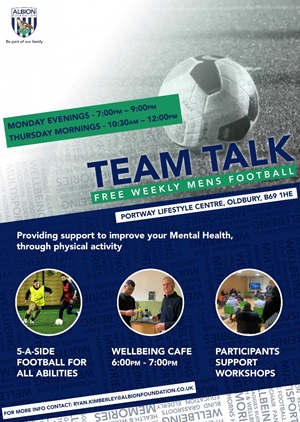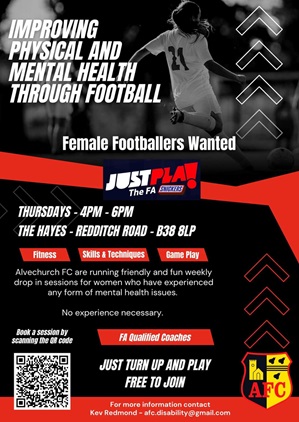
Mental Health
What Does Mental Health Mean in Football?
One in four people will experience a mental health problem each year. Over 10% of the population have depression at any one time. There are millions of people involved in grassroots football, right now, with mental health problems. The examples of Robert Enke, Frank Bruno and Marcus Trescothick show that mental health is relevant to everyone in sport, even at the elite level.
Mainstream clubs should feel comfortable including people with mental health problems, in training, matches and socially. We want to make coaches and team mates confident and comfortable about talking about mental health problems, in the same way that people discuss physical injuries.
“Mental health problems can affect anyone – footballers too. I’m pledging to support Time to Change… It’s ok to talk about mental health.” Tony Adams - England and Arsenal
There are multiple projects delivering fantastic work in football and other sports, specifically to help people with mental health problems.
What Can Football Do To Help?
Sport can help in people’s recovery, help to manage symptoms and can radically improve the quality of people’s lives. Whether it’s in mainstream, community football clubs, or in specialised sport and mental health projects, football can deliver massive benefits. There are three key ways that football can help:
- Delivering social inclusion
- Helping physical health
- Improving people’s mental health
For some people, physical activity can be as powerful as medicine or therapy. In 2010 the Mental Health Foundation said that for people with depression, “Comparative studies have shown that exercise can be as effective as medication or psychotherapy”. Exercise releases natural chemicals like adrenaline and serotonin. It also helps to release muscle tension, raises the body temperature and causes tiredness. These all help relieve stress and provide relaxation – this is of particular benefit for people with mental health problems.
Delivering Social Inclusion
Making friends, holding down a job, keeping fit, staying healthy… These are all normal parts of everyday life. But the stigma that surrounds mental illness makes all of these things harder for people who have mental health problems. While attitudes to sexuality, ethnicity and other similar issues have improved, people with mental health problems are still often treated unfairly. Football can help to break this isolation and include people more in everyday life and their communities.
Helping Physical Health
People with mental health problems are statistically:
- More likely to be obese
- Have 2-4 times greater risk of cardiovascular disease
- Have 2-4 times greater risk of diabetes
- Life expectancy of someone with schizophrenia is typically ten years less – due to physical health problems
Sport and physical activity can help in tackling this inequality.
"football saved my life”
Mental Health Sessions Information

other mental health football opportunities

EHMT

Aston Villa Foundation

Mindful FA

Mental Health League





